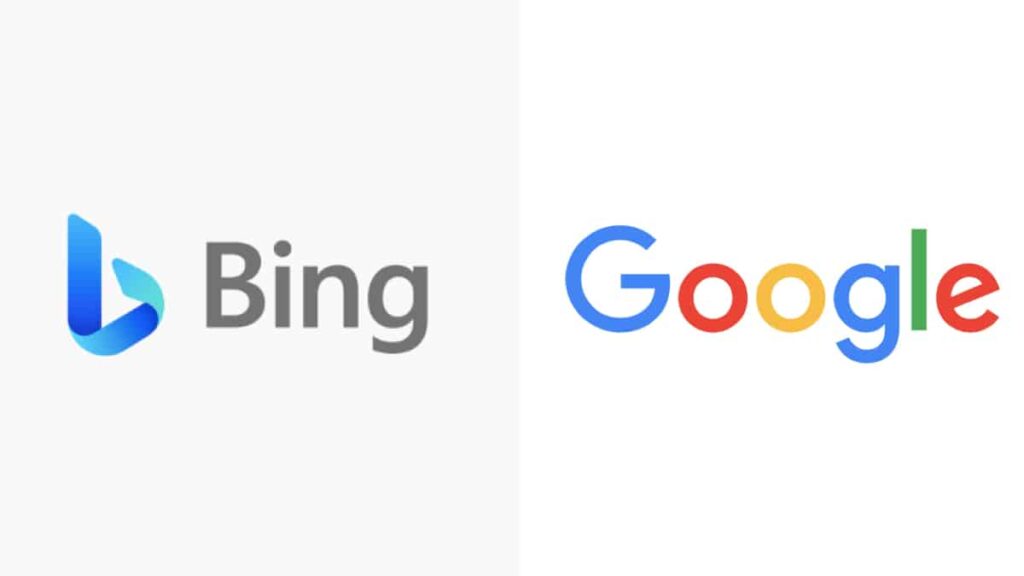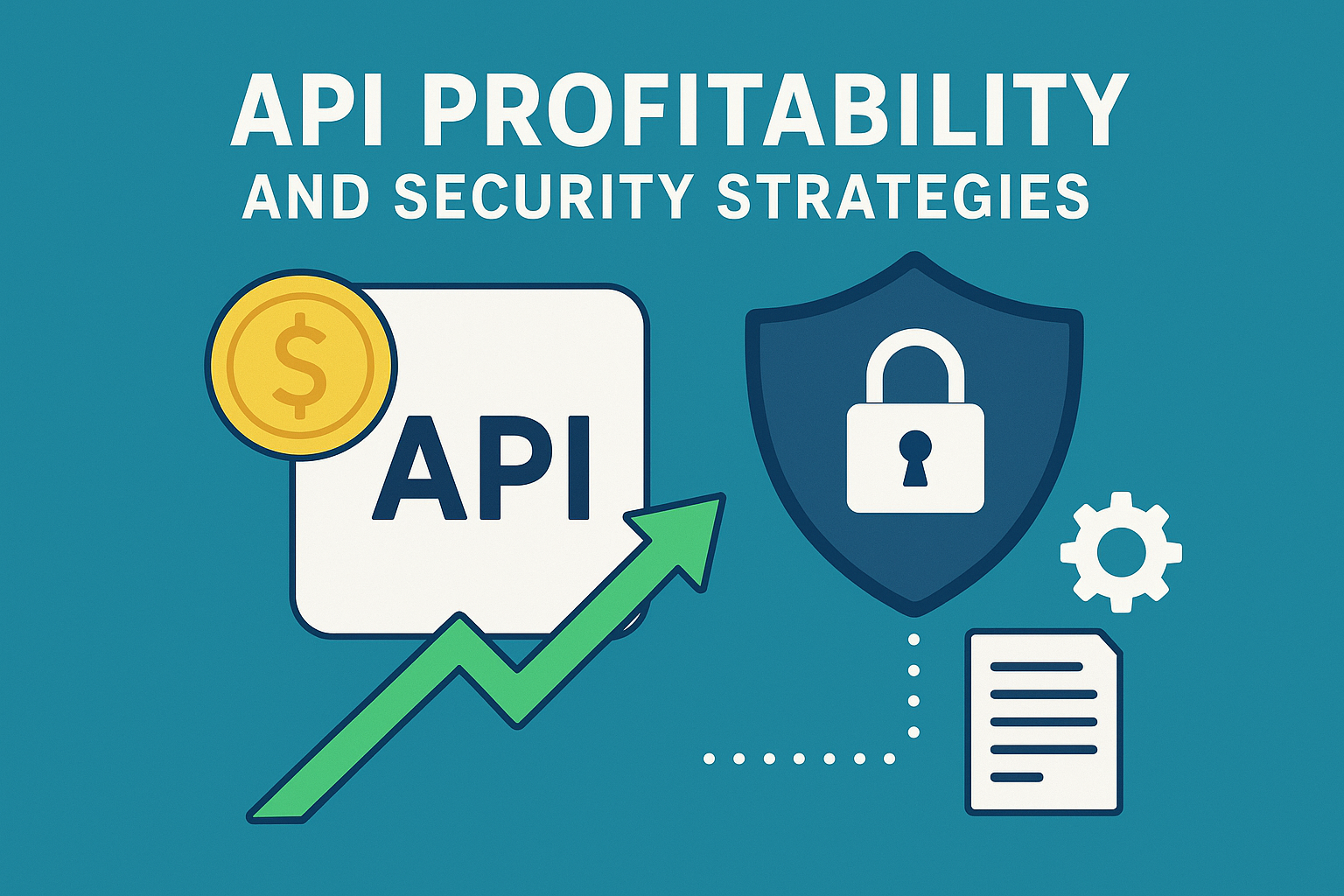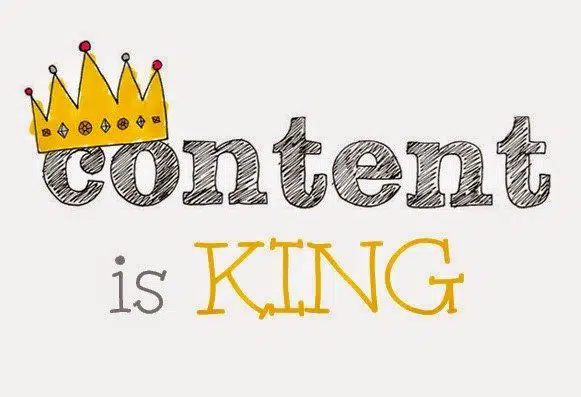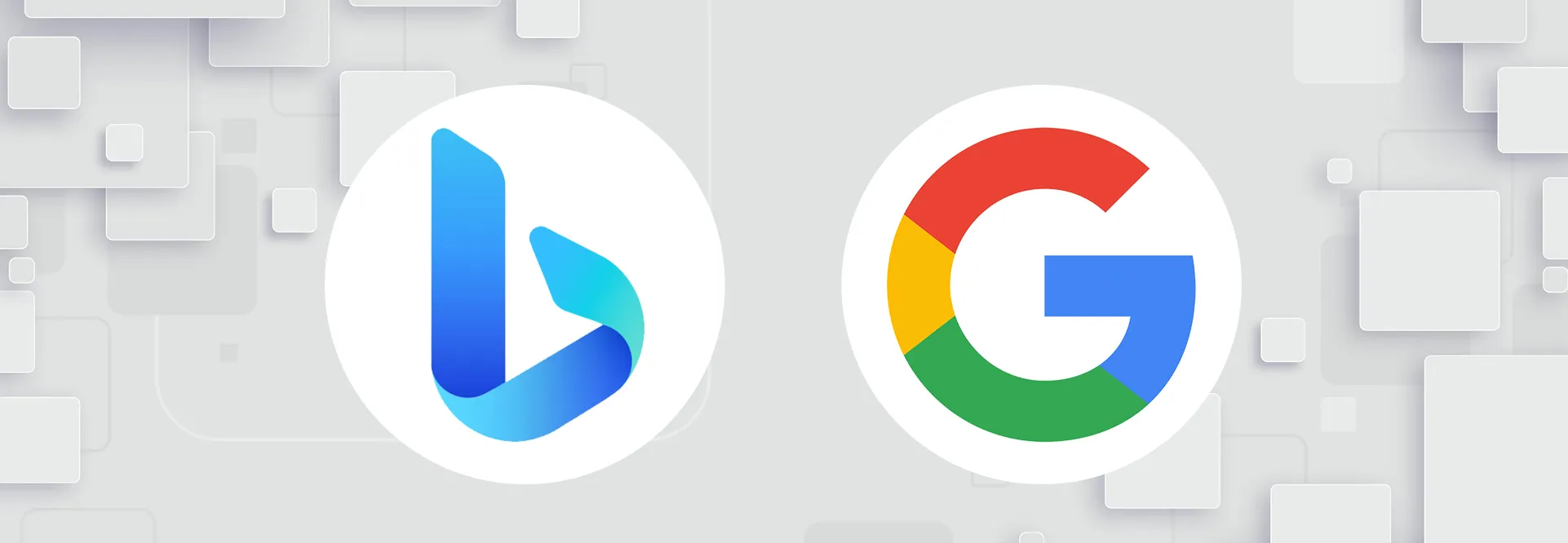The Bing vs Google search engines debate has intensified dramatically in 2025, marking a pivotal moment in internet history as users increasingly question which platform delivers superior results, accessibility, and value. While Google has dominated global search for over two decades with an 89.73% market share, Microsoft’s Bing has quietly grown to capture 4% of the worldwide market, representing a significant shift in the competitive landscape. This comprehensive analysis examines the critical differences between these search giants, from their historical origins to current monetization strategies, search result quality, and accessibility challenges that now define the user experience.
The Seeds of Search the Historical Origins and Evolution
Understanding the Bing vs Google search comparison requires examining their foundational histories. Google was officially founded on September 4, 1998, by Larry Page and Sergey Brin at Stanford University. The duo developed the revolutionary PageRank algorithm, which analyzed web links to rank website importance a breakthrough that would transform internet search forever. Starting in a garage in Menlo Park, California, Google introduced innovations like AdWords in 2000 (now Google Ads), Google Images in 2001, and Google News in 2002, establishing the foundation for its market dominance.
Microsoft’s journey into search took a considerably different path. MSN Search launched in 1998 alongside Google but relied initially on third-party providers like Inktomi for search results. After years of limited success with MSN Search and Windows Live Search, Microsoft made a substantial investment in developing its own search infrastructure. Bing was officially born on June 3, 2009, representing Microsoft’s most serious attempt to compete with Google. The name “Bing” was chosen for its simplicity and memorability, backed by a massive promotional campaign emphasizing Bing as a “decision engine” rather than just another search platform.
Market Share and User Demographics
The global search engine market in 2025 reveals stark disparities in adoption. Google commands approximately 89.73% of worldwide searches, processing over 8.5 billion queries daily a 5.4% increase from 2024. Bing handles approximately 1.2 billion searches per day, marking a 19% year-over-year growth primarily attributed to AI-powered experiences and integration with Windows 11 Copilot and Microsoft Edge. In the United States specifically, Google holds 86.83% market share compared to Bing’s 7.56%.
However, Bing demonstrates remarkable strength in specific segments. On desktop devices in the US, Bing controls 27.6% of the market compared to Google’s 65.4%, and desktop search represents Bing’s primary competitive advantage with a global market share of 11.96%. The demographic profiles also differ substantially: Bing users tend to be older professionals with higher household incomes, with 54% married and 59% having children. This affluent, professional demographic makes Bing particularly valuable for B2B marketers who can leverage LinkedIn integration for targeted campaigns.
Accessibility and User Experience

The accessibility discussion represents one of the most critical differences between Bing vs Google search in 2025 and 2026. Google has implemented increasingly aggressive monetization and security measures that create significant access barriers for certain users. VPN users frequently encounter Google’s “unusual traffic” detection system, which blocks searches or forces users to complete CAPTCHA challenges. The system assumes VPN traffic may represent automated bot activity or search engine optimization manipulation, effectively penalizing legitimate users seeking privacy.
IoT device users and those with ad-blocking software face similar discrimination from Google’s systems, which mark non-standard browsing patterns as potential bot behavior. This aggressive stance reflects Google’s need to protect its advertising ecosystem, any device or connection that might interfere with ad delivery becomes suspect. Users report that Google search becomes virtually unusable with VPN connections active, forcing them to disconnect their privacy protection to conduct basic searches
Bing experiences similar but less severe VPN-related issues. Some users report Bing blocking VPN connections or showing errors, though typically less frequently than Google. Setting the VPN location to the United States or adjusting device time zones to match VPN destinations often resolves Bing connectivity issues. This suggests Bing’s detection systems operate less aggressively than Google’s, though both platforms struggle to balance security needs with legitimate privacy-seeking users.
The Monetization Crisis and Google’s Aggressive Ad Expansion
Google’s search monetization strategy in 2025 represents a fundamental shift that has degraded user experience substantially. The platform now displays an average of 3.8 ads per results page compared to Bing’s 2.1. Even more concerning, Google grouped all sponsored content under a single “Sponsored results” header in October 2025, making advertisements visually blend with organic results. This header remains visible as users scroll, creating persistent ad presence throughout the search experience.
Google Shopping ads have proliferated dramatically, with product advertisements dominating commercial search queries. Multiple ads now appear above, below, and alongside AI Overviews, pushing organic results further down the page. Users frequently must scroll past seven or more sponsored listings before reaching actual organic content. This aggressive monetization reflects Google’s pressure to maximize advertising revenue despite owning 90% market share, suggesting the company prioritizes short-term profits over user experience.
Bing has tested similarly aggressive ad formats, with some users reporting seven or more sponsored results before organic listings. However, these appear to be experimental tests rather than standard practice. Generally, Bing maintains a cleaner user experience with fewer advertisements interfering with search results. The platform offers a “Hide sponsored results” button allowing users to collapse ads, though the “Sponsored results” label remains visible.
Search Result Quality

Independent research reveals troubling trends in Google search quality. A comprehensive year-long study by researchers from Leipzig University found that Google results have been “taken over by low quality, trashy SEO content” with “significant amounts” of “outright SEO product review spam”. The accuracy of search results decreased approximately 10% compared to previous years, while result delivery speed slowed by an average of 0.5 seconds. Higher-ranked pages show increased monetization with affiliate marketing and signs of lower text quality, with strong correlations between rankings and simplified, repetitive, potentially AI-generated content.
Google’s bizarre decision to flood results with Reddit and forum content exemplifies the quality decline. In 2023, Reddit content appeared in only 1% of queries; by 2025, Reddit ranks suspiciously high across countless searches. Google claims forums “feature real people sharing genuine insights,” but Reddit contains substantial misinformation, uninformed opinions, and corporate astroturfing alongside legitimate expertise.
Bing receives more favorable quality assessments in comparative analyses. Side-by-side testing shows Bing delivering “clean and relevant” results “right at the top” with “reputable sources,” while Google serves confusing mixtures of sponsored content, AI overviews, and forum discussions. Bing’s satisfaction rate reaches 72% for overall searches and 92% for product-related and fact-checking queries, though Google maintains higher overall satisfaction at 83%. Bing returns results slightly slower (0.37 seconds average) compared to Google (0.28 seconds), but the difference proves negligible for most users.
Number of Ads
The advertising density comparison starkly illustrates the Bing vs Google search divide. Google displays an average of 3.8 sponsored listings per results page, though commercial queries frequently show four or more ads at the top, additional ads in shopping carousels, and more sponsored content at the bottom. The September 2025 grouping of ads under single headers without individual sponsored labels makes distinguishing advertisements from organic results increasingly difficult.
Google’s AI Overviews add another layer of complexity, appearing in 19% of searches and occupying prime screen real estate before any other content. Shopping ads display prominently for product searches, often consuming the entire first screen with images, prices, and sponsored products before users reach traditional search results.
Bing averages 2.1 ads per results page, nearly half of Google’s ad density. While Bing tested aggressive ad formats with seven or more sponsored listings in March 2025, these extreme layouts remained experimental rather than standard. Bing’s AI-powered responses appear in 34% of queries, higher than Google’s 19%, but Bing’s implementation generally provides cleaner separation between sponsored and organic content.
Webmaster Tools and SEO
Bing Webmaster Tools represents a significant advantage for website owners seeking straightforward solutions to search visibility. The platform offers comprehensive features including search performance reporting with 16 months of historical data, URL inspection tools, IndexNow integration for instant content notification, keyword research, backlink insights, site explorer, sitemap submission, technical SEO audits, and robots.txt testing. The interface emphasizes accessibility and actionable recommendations, making it easier for small businesses and independent webmasters to optimize their sites.
IndexNow stands out as Bing’s most innovative contribution to search infrastructure. This open-source protocol allows webmasters to proactively notify search engines immediately when content is added, updated, or deleted, eliminating traditional crawl delays. The system shifts power back to content creators, providing direct communication channels between websites and search engines.
Google Search Console offers similar functionality but operates within a more complex ecosystem. Google’s infrastructure crawls sites more frequently and comprehensively than Bing, sometimes every few minutes for high authority domains compared to Bing’s average of once every few hours. However, Google’s aggressive algorithm updates and quality assessments create uncertainty for new webmasters and new businesses. The major indexing crisis from May-June 2025 saw millions of pages removed from Google’s index without clear recovery options, with John Mueller dismissing concerns as “normal indexing adjustments” despite widespread, prolonged impacts.
Algorithm Differences and Ranking Factors
Understanding how Bing vs Google search engines rank content reveals fundamental philosophical differences. Bing places significant emphasis on exact keyword matches, favoring websites that include precise search terms in domain names, URLs, titles, meta descriptions, and content. This precision focused approach makes Bing rankings more predictable for SEO professionals targeting specific keywords. Bing also values social media signals more transparently, with shares and engagement from platforms like Facebook and Twitter influencing rankings.
Google has evolved toward contextual understanding and user intent rather than exact keyword matching. Following RankBrain and BERT updates, Google’s algorithms interpret the semantic meaning behind queries, considering synonyms, related concepts, and overall content relevance rather than requiring exact phrase matches. Google employs over 200 ranking signals including page experience, Core Web Vitals, and E-E-A-T (Experience, Expertise, Authoritativeness, Trustworthiness), creating a more complex but potentially more nuanced ranking system.
Both platforms increasingly incorporate AI into search algorithms. Bing leverages GPT-style language models through its partnership with OpenAI, enabling more sophisticated query interpretation and response generation. Google’s Gemini models power Search Generative Experience, though implementation has proven problematic with AI Overviews suggesting users “put glue on pizza” and providing other obviously incorrect answers.
The Coverage Question
Google indexes over 50 billion web pages daily with aggressive crawling that updates high-authority content within minutes. This massive infrastructure ensures comprehensive web coverage and rapid discovery of new content with priorities on high-authorit domains. Mobile-first indexing applies to 100% of Google’s indexed websites, reflecting the platform’s mobile-centric approach.
Bing indexes approximately 12 billion pages daily, focusing on canonical and authoritative content rather than comprehensive coverage. Bingbot crawls sites less frequently than Googlebot, and 38% of Bing’s indexed sites still use desktop-first crawling rather than mobile-first indexing. This smaller index and less frequent crawling can delay visibility for new or updated content, though Bing’s IndexNow protocol helps mitigate these delays for participating websites.
The coverage difference reflects strategic choices about quality versus quantity. Bing’s focused approach may reduce spam and low-quality content in search results, while Google’s comprehensive indexing ensures broader content discovery but potentially includes more low-quality pages.
AI Integration: The Future of Search
Both platforms have embraced AI-powered search experiences, though with different implementations and success rates. Bing leads in AI integration with 34% of searches powered by generative AI tools compared to Google’s 19%. Microsoft’s partnership with OpenAI enables Bing Chat (now Microsoft Copilot) to summarize documents, answer multi-step questions, and generate citations directly in results. Bing’s AI responses include multimedia elements 52% of the time versus Google’s 33%, creating richer, more informative experiences.
Bing AI receives higher user satisfaction ratings at 4.6 out of 5 compared to Google SGE’s 4.2, particularly excelling at long-form content generation and citation-based responses. The integration with Windows and Microsoft 365 applications creates seamless experiences for business users working within the Microsoft ecosystem.
Google’s Search Generative Experience uses Gemini models to pull real-time data from Search, News, and Shopping, theoretically reducing dependence on third-party tools. However, implementation quality remains inconsistent, with AI Overviews sometimes providing dangerously incorrect information. Google’s Multisearch tool combining image and text queries appears in 24% of mobile searches in supported regions, demonstrating innovative visual search capabilities.
Privacy and Data Collection
Privacy concerns represent a critical dimension of the Bing vs Google search comparison. Google collects extensive user data including search history, location information, clicked links, time spent on pages, device information, and browsing patterns to personalize results and target advertisements. Even when using VPNs, Google employs sophisticated algorithms to identify users through search patterns, timing, and behavioral metrics. Google accounts tie search history directly to user identities, enabling comprehensive tracking across devices and sessions.
Bing collects similar data but typically implements less aggressive tracking. Microsoft’s privacy policies allow data collection for advertising and personalization, though user reports suggest less invasive tracking compared to Google. Both platforms offer privacy controls, but truly anonymous searching requires alternative engines like DuckDuckGo, Brave Search, Mojeek, or Startpage
VPN compatibility dramatically differs between platforms. Google frequently blocks or challenges VPN users with CAPTCHA requirements, treating privacy seeking behavior as suspicious. Bing shows more tolerance for VPN connections, though some users still experience connectivity issues resolved by location adjustments.
The Verdict: Which Search Engine Wins in 2025?
The Bing vs Google search engines comparison reveals no simple winner, the optimal choice depends on user priorities and specific needs. Google maintains undeniable advantages in comprehensive indexing, rapid crawling, advanced contextual understanding, and integration with a vast ecosystem of services from Gmail to YouTube. For users prioritizing maximum information access and cutting-edge search technology, Google remains the default choice despite growing quality concerns.
However, Bing offers compelling advantages that make it increasingly competitive. The platform provides cleaner search results with fewer advertisements, more straightforward webmaster tools, better AI implementation satisfaction ratings, superior desktop search experience, and less aggressive user tracking. For privacy-conscious users, VPN compatibility issues affect Bing less severely than Google. Business users within Microsoft‘s ecosystem benefit from seamless integration with Windows, Office, and enterprise services.
The future trajectory suggests continued competition with AI capabilities becoming the primary differentiator. Bing’s OpenAI partnership positions it strongly for AI-powered search evolution, while Google’s massive infrastructure and data advantages enable comprehensive AI training. The real question may not be which engine is “better” but rather whether competition finally forces both platforms to prioritize user experience over maximum monetization.









Leave a Reply